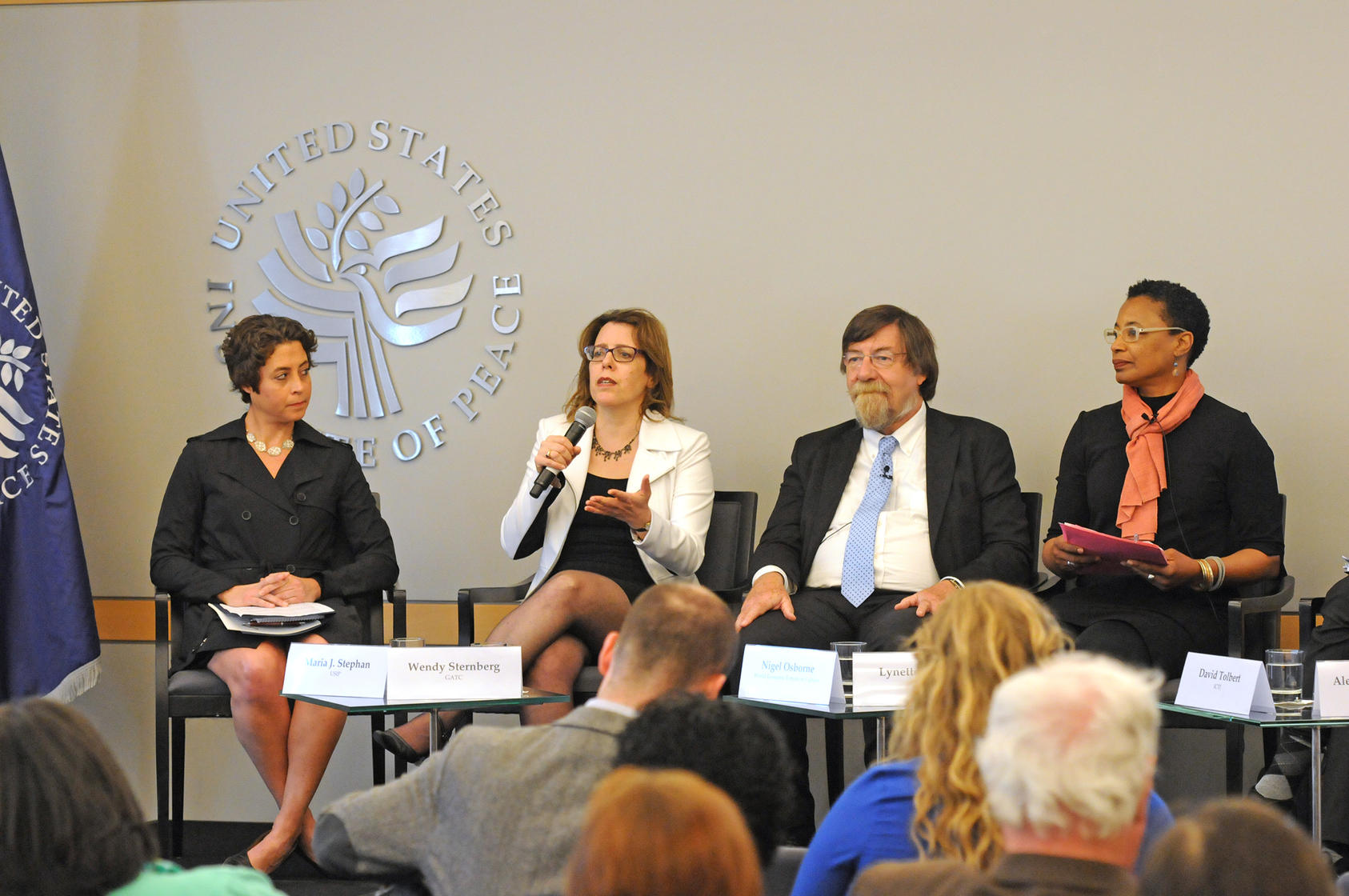Using the Arts to Promote Human Rights in Peacebuilding
Genesis at the Crossroads, a Chicago-based organization that uses the arts in peacebuilding, joined the U.S. Institute of Peace on April 22, 2015 to host an interactive panel discussion on building peace and human rights—and the role that the arts and artists can play.

Genesis at the Crossroads uses education and the arts — including innovative performances of music, dance and other genres — to creatively promote human rights, inter-ethnic dialogue and the building of peace. On April 22, USIP held a conversation with academic, artistic and human-rights specialists about this intersection of human rights and the humanities. As part of a “new conversation for human rights in peacebuilding,” panelists discussed how to mesh human rights concerns with the reconstruction of societies and governments following war or other violent conflict. Continue the conversation on Twitter with #ArtsForRights.
Speakers
- Maria Stephan
Senior Policy Fellow, U.S. Institute of Peace - Wendy Sternberg
Founder and Executive Director of Genesis at the Crossroads - Nigel Osborne
Co-Chair of the World Economic Forum on Culture and University of Edinburgh Emeritus Professor of Music who works with traumatized children the world over. - Dr. Lynette Jackson
Professor of African-American and Gender and Women's Studies at University of Illinois, Chicago, and a human rights activist who works on issues relating to urban America as well as on gender issues and sexual rights. - David Tolbert
President of the International Center for Transitional Justice (ICTJ). Former UN Assistant Secretary-General, who served as the Special Expert to the UN Secretary General on the Khmer Rouge Trials; Registrar of the Special Tribunal for Lebanon and Deputy Chief Prosecutor of the UN International Criminal Tribunal for the former Yugoslavia. - Alexandra Salomon, Moderator
Producer at Chicago Public Radio’s WBEZ.




